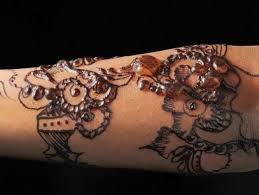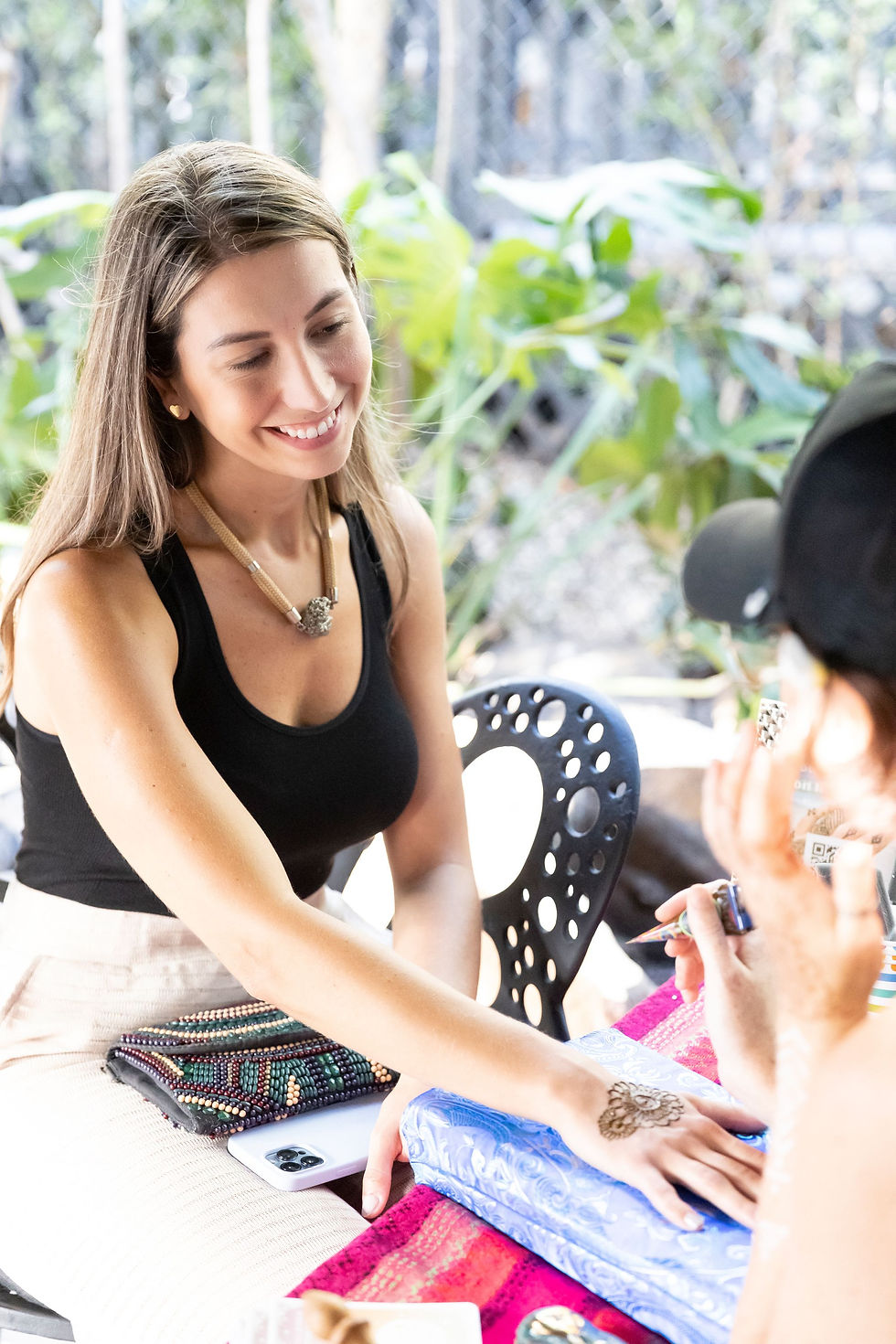Why I am an uncompromising advocate for Natural Henna
- Mishelle Wade

- Oct 7, 2019
- 4 min read
Updated: Jun 23, 2020
Why do I KEEP saying, NATURAL henna? Seems a bit redundant right? Isn't all henna natural? The short answer is sadly, NO!
Over the years, the majority of henna products readily available to the public are not natural henna. Let's be clear, henna is a PLANT, henna is also the word used for the art form of applying the plant topically for temporary designs.
Modernization of henna has commodified the use of henna in factories by mass producing their own adulterated paste by adding harsh ingredients like kerosine, turpentine and PPD that are not skin-safe to keep "henna" from expiring and/or to make a fast, dark stain. These cones generally make it to the United States and other countries by exporting the "henna" cones as Halal without adhering to current safety and labeling standards. In many countries these cones are illegal. The fact is, natural henna that is mixed into a paste could never make the trip from India (for example) to the United States without being frozen the entire time. Plant based henna would spoil and expire during the hot 1-3 weeks in transit.
These unnatural "henna" products are easily found sold on Amazon or Ebay, on the shelf in colorful/ holographic wrappers at Indian grocery stores or henna for hair at Sally's Beauty store with harsh metals added. ( Beauty store henna will fry treated hair!) Many people insist henna comes in many different colors, that is simply not true. The products are called "henna" to be marketed and sold as "henna" but they seldom contain real henna; natural henna always stains reddish brown**. ( Natural henna can also stain cherry red to black color on the inner palms or feet due to thicker skin and good aftercare.)
Some cones are even mixed by artists at home using additives like kerosine, turpentine or iodine to make the color darken very quickly and reach black hues. That is why I encourage every customer to be discerning and ask the artist EXACTLY what is in their mix. Some unethical artists will lie, or repackage fake henna which is why you need to use your eyes and nose. If it is staining colorful or black, it's not henna, if it smells harsh and chemical or stains instantly, it's not natural. Natural henna smells like earth and essential oils. Natural henna takes days to develop.
So, to answer the title of my blog post: Why I am an uncompromising advocate of natural henna: Here are my own personal reasons...
- I respect human safety and always want to show regard for my clients well-being by my commitment to mixing fresh, natural organic henna paste
-I want to support ethical farming practices & farmers/permaculture (viability of the soil for generations) (Henna naturally grows in desert climates in places like India, Africa, Pakistan, Iran, Australia etc.)
-I respect the historical traditional uses** of henna which were rustic and only plant based, used to cool the body down in warm environments using paste made from fresh henna leaves, I do not wish to alter the healing/ cooling/ therapeutic effects that henna naturally has
-My insurance would NEVER cover unsafe products like black henna, instant henna, or adulterated henna
-I don’t care about money over public safety, so please don’t offer me more payment to use your own “henna” its just not worth it to me. Ask someone else, and no I can’t recommend someone.. sorry lol
Edit: There are many traditional uses of henna in many different cultures/ religions, Im referring to one historical example of origin usage in hot climates! (India and Africa namely). It is important to remember henna has MANY multi-cultural/ intersectional traditional uses that vary.
Link to a Facebook video reposted from News 24: A news report on the dangers of Instant Henna and the conditions found in their factory in Bangladesh. In the video, they go over the burning reactions after applying the henna and then show the dirty conditions in the factory and try to interview the manager who runs away from the reporter. (copy + paste link below)
Photos below are screenshots from the news report on a chemical henna factory in Bangladesh & pictures of chemical cones that should be avoided, Please further google reactions if you dare, to see chemical henna or black henna (graphic pictures) of what happens when people's skin reacts to such chemicals.
Please do not hesitate to reach out to me if you have questions concerning natural henna. If you have been exposed to such fake henna and have a reaction, I recommend going to your doctor ASAP for treatment. Ask the artist who applied the "henna" what is in it (if they know) so your doctor can properly treat you! You may be entitled to compensation from the artist if they have harmed you, however, many artists who use harmful products do not have insurance.
(I do not own rights to these images and I give credit to their respective owners which I believe are News 24, Sarah henna & Henna by Nadia for the cone warnings).
Please be safe and enjoy natural henna.
XOXO- Moonchild Mehndi















Comments